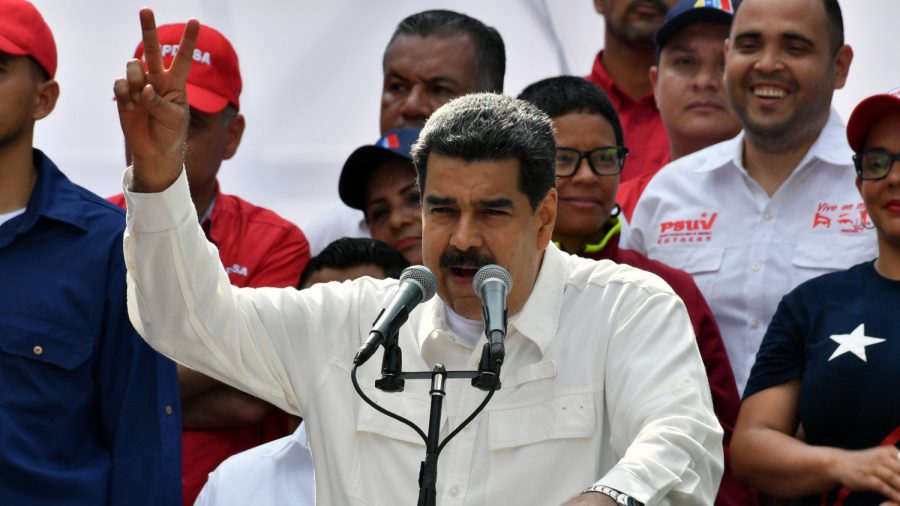Russia rebuffed calls from President Donald Trump to remove all military personnel from Venezuela, saying on March 28 that they had sent “Russian specialists” as part of a military cooperation deal.
A day before, Trump said that “all options” were being considered in order to make Russia pull their troops out of Venezuela. The president’s remarks follow reports last week that two Russian air force planes landed outside Caracas carrying nearly 100 Russian troops.
Venezuela’s military attache in Moscow, Jose Rafael Torrealba Perez, said that Russia had sent “servicemen” to Venezuela, but that they would not take part in military operations.
“The presence of Russian servicemen in Venezuela is linked to the discussion of cooperation in the military-technical sphere,” Perez was quoted as saying.

Russia and China have for years fed billions of dollars to Venezuela and the country’s illegitimate dictator, Nicolás Maduro, through loans and energy deals. Russia has also repeatedly warned the United States not to intervene militarily in Venezuela. Other notable Maduro supporters include Turkey, Bolivia, Iran, and Cuba.
The United States supports Juan Guaidó, the internationally recognized interim president who has the backing of more than 50 nations. As Venezuela spirals into political turmoil, the Trump administration has intensified pressure on the socialist regime with the addition of new sanctions on March 22—this time, targeting Venezuela’s National Development Bank, Bandes.
The Russian troops were described by Russian foreign ministry spokeswoman Maria Zakharova as “Russian specialists” on March 28. She did not give further details.

“Russia is not changing the balance of power in the region, Russia is not threatening anyone, unlike (officials) in Washington,” she told the briefing. “Russian specialists have arrived in Venezuela in line with the provisions of a bilateral inter-government agreement on military-technical cooperation. No one canceled this document.”
The U.S. State Department did not immediately respond to a request for comment from The Epoch Times. Maduro, who retains control of the state apparatus and the country’s military, has described Guaidó as a puppet of the United States.
US Responds
Carlos Trujillo, the U.S. Ambassador to the Organization of American States (OAS), denounced Russia’s sending of military troops.
The OAS brings together all 35 independent states of the Americas and constitutes the main political, juridical, and social governmental forum in the hemisphere, according to their website.

“I take the floor to strongly condemn the deployment of Russian aircraft and military personnel in Venezuela on March 23,” Trujillo told the council. “This deployment is a reckless escalation of a dangerous situation.”
Trujillo noted that Russia was not alone.
“Cuban military and intelligence officials have been propping up Nicolás Maduro for years, and they have taken on an even a larger role now to protect the crumbling former regime,” he said.
The ambassador also brought up that under article 187 of the Venezuelan constitution, the National Assembly shall “authorize the operation of Venezuelan military missions abroad or foreign military missions within the country.”
He said the Russian deployments were a “clear violation” of Venezuela’s constitution since the National Assembly, which Guaidó heads, had not authorized the presence of Cuban and Russian military forces.
“I call on all OAS Member States to vigorously protest the arrival of the Russian military personnel, and the continuing presence of Cuban agents in Venezuela,” Trujillo said.
Reuters contributed to this report
From The Epoch Times


